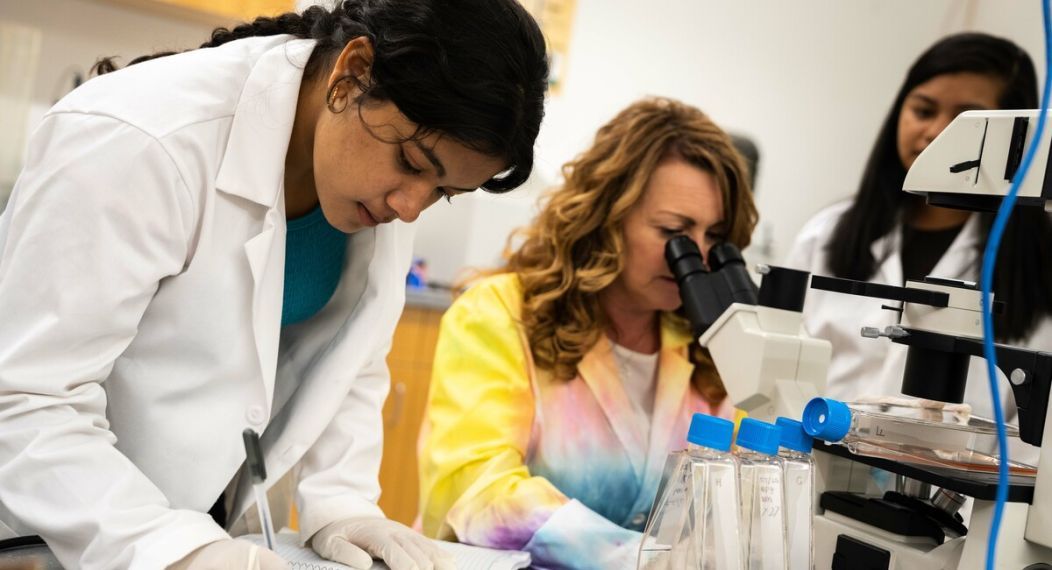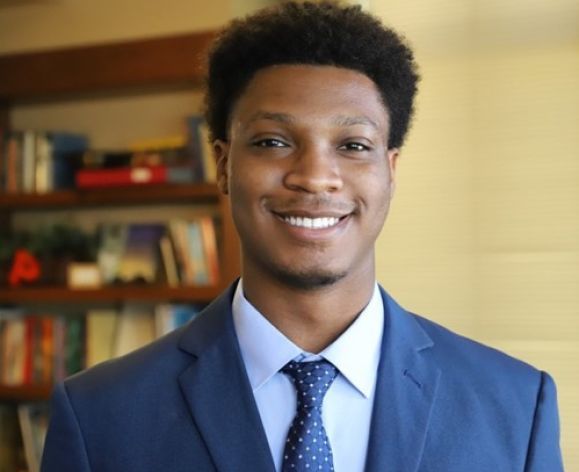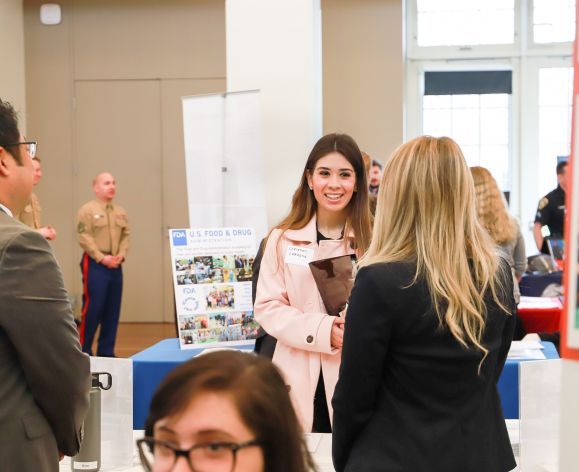The vision for the School of Engineering and Computer Science (SOECS) is to be the top student-focused engineering/computer science school. Achieving our vision for SOECS students is only possible through close collaboration with the school’s many organizational partners via the CO-OP program. This guide provides an overview of your CO-OP experience.
Why CO-OP?
CO-OP is a requirement for undergraduate students majoring in Civil Engineering, Engineering Management, Mechanical Engineering, Electrical Engineering, Engineering Physics and Computer Engineering. CO-OP is an integral part of the curriculum for these majors. CO-OP is optional for Computer Science and Bioengineering majors, but highly recommended. It is also optional for international students.
Having a CO-OP position will strengthen and reinforce your academic engineering knowledge and skills. You will acquire hands-on industry experience and programming skills; and learn how to navigate in a professional environment and build confidence. CO-OP makes you more employable. Employers tell us that they prefer to hire graduates with the real-world experience that CO-OP provides, and many SOECS CO-OP students are offered full time positions after graduation. Additionally, it allows you to:
- Connect classroom knowledge to industry practice
- Learn and practice professional skills needed to successfully collaborate in a team
- Learn job hunting and interviewing skills in preparation to your CO-OP and post-graduate employment
- Build a network of professionals who are interested in seeing you succeed
- Earn a paycheck during CO-OP which might help defer educational expenses
How long is CO-OP?
Generally, aCO-OP extends over a semester and a summer. Since you receive academic credit for your CO-OP, the Director of Cooperative Education must ascertain and approve the quality and length of your experience. The agreement you make with your CO-OP employer usually includes out the beginning and end date for your employment.
When to take CO-OP?
Your CO-OP will generally take place in your junior or senior years. You will work closely with your faculty advisor to develop an academic plan, so you can keep track of courses and plan your CO-OP. Typically your Co-Op would begin either in the spring semester of your junior year or in the summer before your senior year. Exceptions to this pattern are possible depending on the academic plan that you work out with your faculty advisor. In some cases, a summer/summer CO-OP is an option for a student.
Your CO-OP cannot be taken at the end of your academic career. You would need to return to school for at least seven units of credit following your CO-OP. Consult the Stockton General Catalog for more information.
What are the pre-requisites for CO-OP?
You should take ENGR 25 Professional Practice Seminar the semester before your CO-OP. This class helps you prepare your résumé and portfolio, hone your interviewing skills, give you ways to search for and apply for CO-OP positions, learn about having a successful CO-OP experience, and explore different industries and career options. You must also have completed your Fundamental Skills as defined in the Stockton General Catalog. A minimum GPA of 2.0 is required. Some CO-OP employers require a higher GPA and may also require a background check and drug test.
How many credits are earned for a CO-OP?
You will earn a total of 32 units or 16 units per academic term. While taking the CO-OP courses, ENGR 181 and ENGR 182, you will receive a syllabus, have graded assignments, and submit a final report. You will receive a pass/no credit grade for the class. If your CO-OP experience is not sufficiently long or of sufficient quality your CO-OP units may be less than 32 units.
May I take other classes concurrent with CO-OP?
You may not take other classes while on CO-OP. Consult the Stockton General Catalog for more information. Your employer has an expectation that you will dedicate full-time employment with them.
How do I find a CO-OP?
Finding a CO-OP is a collaborative process. Your active and early participation in the search is essential for success. The CO-OP office brings employers to campus for career fairs, information sessions, interviews and arranges for off-campus interviews. Additionally, Alumni Association and student clubs also have career related campus events. You are expected to also search for your own CO-OP. In ENGR 25, and in conjunction with Career Services, we will give you the skills and resources to successfully secure a CO-OP.
Sometimes the best way to find a CO-OP is to work in parallel with all available resources and through your own network of family, friends, faculty and employers. The keyword is being flexible and open to getting a good experience.
How do I prepare for my CO-OP?
At the start of your first year at Pacific, you will meet with your faculty advisor to create your Academic Plan. Depending on your major, your faculty advisor can tell you what you will need to accomplish and when you can expect to graduate. This determines where your CO-OP fits in your academic career. It is never too early to start looking for a CO-OP. So, start by considering these activities:
- Keep your résumé and LinkedIn updated
- Complete your Handshake profile
- Consider a summer internship early in your academic career
- Attend career fairs and other events hosted by employers and SOECS
- Join a SOECS student club and attend meetings and events
- Work your networks of family and friends for leads to a CO-OP
Can I take my CO-OPs abroad?
Students may have an international CO-OP. Taking the course, INTL 151 Cross-Cultural Training, is recommended to be completed prior to working overseas. You may also need to take appropriate language courses. You should consult International Programs and Servicesfor additional requirements and information. An international Co-Op requires a lot of lead time to negotiate foreign laws, so plan accordingly.
How do transfer students with work experience complete a CO-OP?
At the start of your first year at Pacific, you will meet with your faculty advisor to create your Academic Plan. Depending on your major, your faculty advisor can tell you what you will need to accomplish and when you can expect to graduate.
Will I be paid during my CO-OP?
We encourage employers to pay CO-OP students. Pay rates vary greatly from industry to industry and region to region. We see CO-OP salaries in the range of $15.00 to $32.00 per hour. Students may petition to take an unpaid position to satisfy the CO-OP requirement. The volunteer experience must meet all requirements for a CO-OP.
Can an international student do a CO-OP?
Yes. A CO-OP is an option for international students. It is strongly suggested you make this intention known to your academic advisor and the Director of Cooperative Education early in your academic career. There are special requirements related to your visa. An F1 visa with OPT (Optional Practical Training) or CPT (Curricular Practical Training) approval is required. You should consult International Programs and Services for more information.
What if I’m unable to secure a CO-OP?
The search for a CO-OP is a cooperative effort between you and the CO-OP office. The CO-OP office will work diligently to find opportunities for you, but you must do your part by preparing your résumé, using effective job search, and networking strategies, developing your interviewing, and negotiating skills, and aggressively pursuing all opportunities. It is an expectation that you will also search for CO-OP opportunities on your own initiative with an early start.
If you are unable to secure a CO-OP for the designated period in your academic plan, you will have to revise your academic plan in coordination with your faculty advisor. The goal will be to fit the CO-OP into a revised plan and to apply lessons learned in the first attempt.






